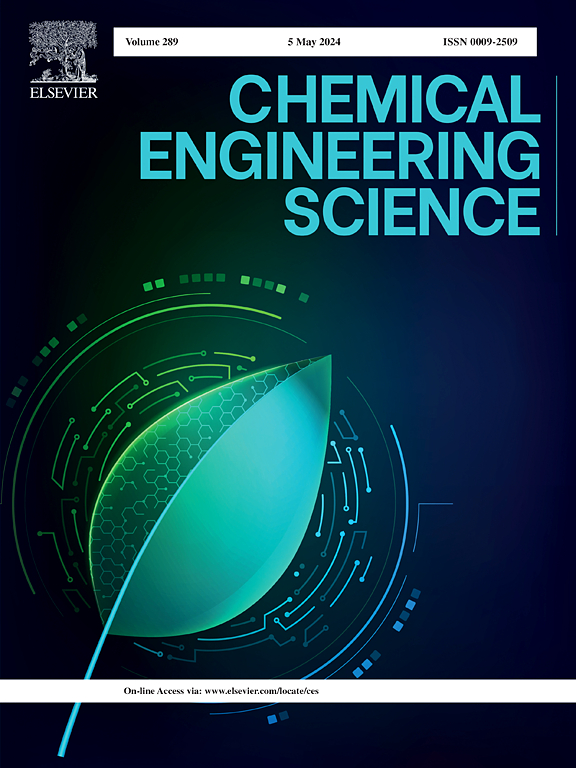基于流动反应器光谱数据的反应系统快速动力学建模
IF 4.1
2区 工程技术
Q2 ENGINEERING, CHEMICAL
引用次数: 0
摘要
连续流微反应器由于具有优良的传热传质性能和比传统反应器系统消耗更少的试剂,已越来越多地用于动力学研究。集成的过程分析工具,如在线光谱仪与这些反应器可以提供有关反应系统的实时信息。虽然基于校准的方法通常用于将光谱数据转换为浓度,然后进行动力学建模,但开发校准模型需要耗费大量时间和资源。在本文中,我们提出了一种无需校准的方法,该方法直接从流动反应器获得的光谱数据中估计动力学参数,而不需要纯组分光谱信息。所提出的方法最初通过模拟案例研究进行了演示,并在集成了原位紫外可见分光光度计的微反应器中使用两个具有不同复杂性的反应系统进行了实验验证。本文提出的无校准方法的结果也通过传统的基于校准的方法得到验证。本文章由计算机程序翻译,如有差异,请以英文原文为准。
Rapid kinetic modelling of reaction systems from spectroscopic data in flow reactors
Continuous flow micro-reactors have been increasingly used for kinetic studies as they possess superior heat and mass transfer properties and consume fewer reagents than conventional reactor systems. Integration of process analytical tools such as inline spectrometers with these reactors can provide real-time information about the reaction system. Although calibration-based methods are generally used to translate the spectral data into concentration followed by kinetic modelling, developing a calibration model is time- and resource-intensive. In this paper, we propose a calibration-free approach where kinetic parameters are estimated directly from the spectral data obtained from flow reactors without the information of pure component spectra. The proposed methodology is initially demonstrated using a simulated case study and experimentally validated using two example reaction systems with varying complexity in a micro-reactor integrated with an in situ UV-visible spectrophotometer. The results from the proposed calibration-free approach in this work are also validated by traditional calibration-based methods.
求助全文
通过发布文献求助,成功后即可免费获取论文全文。
去求助
来源期刊

Chemical Engineering Science
工程技术-工程:化工
CiteScore
7.50
自引率
8.50%
发文量
1025
审稿时长
50 days
期刊介绍:
Chemical engineering enables the transformation of natural resources and energy into useful products for society. It draws on and applies natural sciences, mathematics and economics, and has developed fundamental engineering science that underpins the discipline.
Chemical Engineering Science (CES) has been publishing papers on the fundamentals of chemical engineering since 1951. CES is the platform where the most significant advances in the discipline have ever since been published. Chemical Engineering Science has accompanied and sustained chemical engineering through its development into the vibrant and broad scientific discipline it is today.
 求助内容:
求助内容: 应助结果提醒方式:
应助结果提醒方式:


